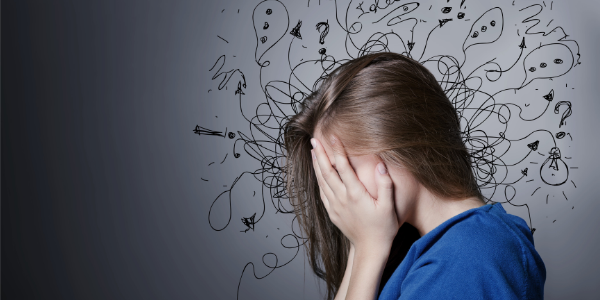The changes that come with menopause can cause anxiety. Learning how to manage anxiety helps you live your best life.
Menopause typically begins after the age of 40, and the average age of menstruation ending is around 51. The years leading up to menopause include a stage called perimenopause that also generates new symptoms. Women in either of these stages may experience trouble sleeping, mood swings and increased anxiety. Finding ways to manage anxiety during and after menopause helps you to make it through this transition with better mental health.
Ways to Manage Anxiety
Start an Exercise Routine
The process of going through menopause puts tremendous stress on your body. This can cause it to release the stress hormone cortisol. High levels of cortisol can lead to symptoms of anxiety such as a racing heart, sweating and muscle tension. Exercising helps the body to process cortisol and bring it down to normal levels. This is why many people find that they experience a more positive mindset after they complete a good workout.
Travel to a New Location
Taking a vacation is a well-known way to manage anxiety, but this strategy has even further benefits for women who are going through menopause. Getting out of your comfort zone helps you to shift your perspective. Seeing how other cultures manage their daily lives and enjoy new experiences may give you the ability to see how your anxiety is just a temporary state of mind.
 Seek Counseling
Seek Counseling
Talking to someone else helps you see that you are not alone in dealing with your symptoms. A professional therapist can help you sort out which parts of your symptoms are based upon physical changes in your body. A counselor can look at your situation and symptoms and identify whether or not you may have other mental health issues occurring. For instance, going through menopause can also increase your risk for developing depression, which can worsen anxiety symptoms.
Manage Anxiety with Dietary Changes
Some of the things that you eat or drink could make anxiety symptoms worse. For example, alcohol is both a stimulant and a depressant. Hangovers can cause increased anxiety. Caffeine is another stimulant that might be increasing your anxiety levels. Cutting down on these drinks could improve your mental well-being. Eating certain foods is associated with easing anxiety. Complex carbohydrates are broken down slower in your body, which can minimize the impact of fluctuating blood sugar levels.
Get Involved in the Community
Sometimes, anxiety causes you to focus too much on yourself. Volunteering is a way to shift the focus from your symptoms to someone else. You can choose to volunteer at a local shelter or sign up to help recruit supplies for a food bank. Spending time helping others increases the positive thoughts that you have while giving you a broader support network. You’ll also feel a sense of accomplishment that helps you to battle the negative thoughts that come with anxiety.
Master the Power of Distraction
A major anxiety attack only lasts a few minutes, but it can feel like hours. Getting through those minutes is easier when you have several tools in your kit to distract yourself from your symptoms. Counting to 10 is one tool that people have used for many years. You can also choose to listen to music, go for a walk or call a friend. Mindfulness meditation is a popular method that you can use to stay grounded while taking a break from stressful thoughts.
Focus On Getting Quality Sleep
Changing hormone levels tend to be worse at night. This could be one of the reasons why women going through menopause tend to experience frequent wakings in the night or difficulty falling asleep. A lack of sleep can increase anxiety symptoms, which can make this a never-ending cycle of misery for women who aren’t able to take control of the issue. Fortunately, you can do things to improve your sleep. Try making the hour before bedtime more relaxing by dimming the lights and avoiding electronics. Read a book, take a bath and focus on relaxing into the evening.
Dealing with anxiety might not be easy as your body goes through so many changes at once. Feeling physically and mentally well begins with learning how to manage anxiety and keep moving forward. With anxiety, it is best to take a multipronged approach to easing your symptoms. Make sure to experiment with different strategies to find what works best for helping you maintain a positive attitude.





